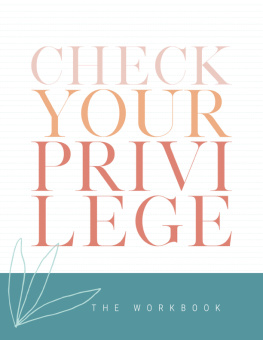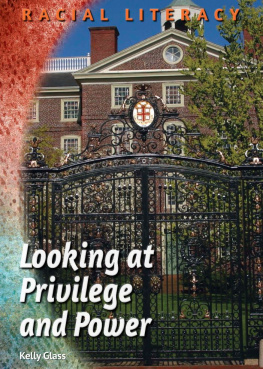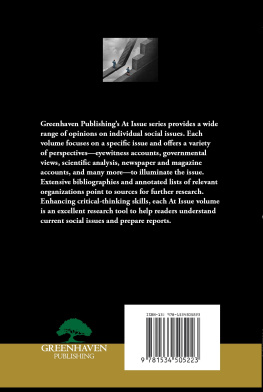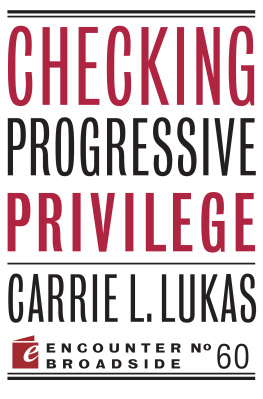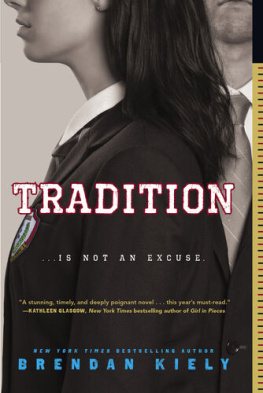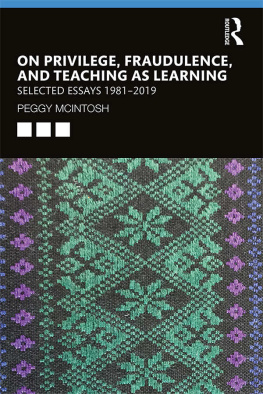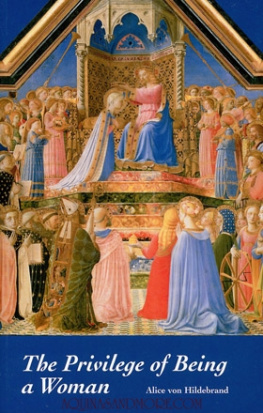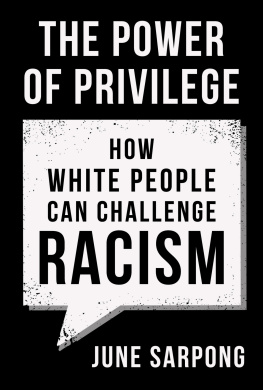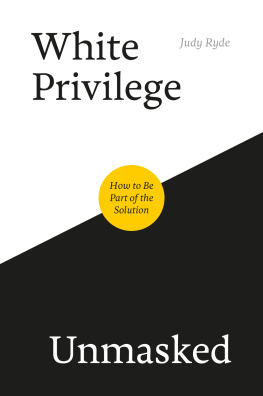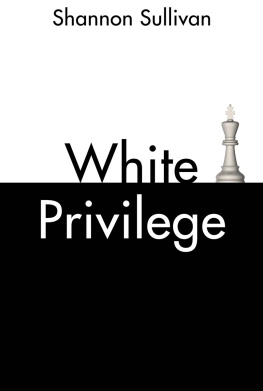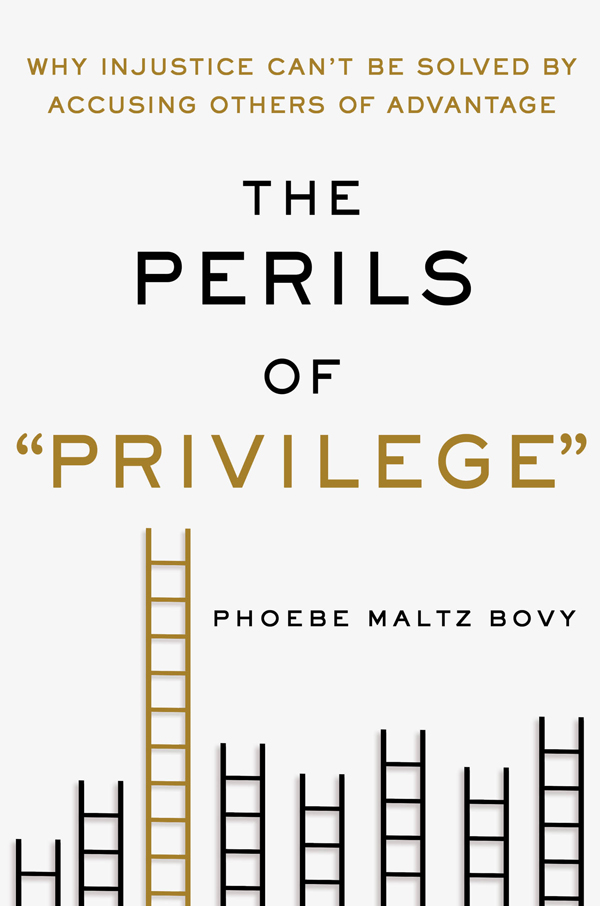Contents
Guide

The author and publisher have provided this e-book to you for your personal use only. You may not make this e-book publicly available in any way. Copyright infringement is against the law. If you believe the copy of this e-book you are reading infringes on the authors copyright, please notify the publisher at: us.macmillanusa.com/piracy.
FOR JO
THE ONLINE PRIVILEGE conversations covered in this book occurred during or prior to spring 2016. Just as my own thoughts on the topic of privilege have evolved and continue to evolve since I began exploring the subject (around 2009) on my blog, What Would Phoebe Do, its entirely possible that the writers and thinkers cited herein will have changed their own views by the time this book is published, or at some later date. I do not wish to claim that something someone published or posted in, say, 2013 defines what he or she will think for all eternity. Thats not how opinions, mine or anyone elses, work.
Furthermore, I wish to remind readers that Internet Web sites and source notes referenced in this work may have changed or disappeared between when the book was written and when it will be read.
We used to live in this tiny old tumbled-down house with great big holes in the roof.
House? You were lucky to live in a house. We used to live in one room, all twenty-six of us, no furniture, we were all huddled together in one corner
You were lucky to have a room! We used to have to live in the corridor.
MONTY PYTHON, FOUR YORKSHIREMEN
Im not as thin privileged as I used to be.
SAVAGE LOVE (DAN SAVAGES SEX-ADVICE COLUMN), ONLINE COMMENTER J.R.
[A] HORRIBLE PERSON
In a freezing-cold flat in Berlin, Im standing under the shower with the water turned up as high and hot as it will go. Im trying to boil away the shame of having said something stupid on the internet. The shower is the one place its still impossible to check Twitter. This is a mercy. For as long as the hot water lasts I wont be able to read the new accusations of bigotry, racism and unchecked privilege. I didnt mean it. I dont understand what I did wrong but Im trying to understand.
* * *
THE ABOVE RECOLLECTIONS , from a 2015 article in the New Statesman by the writer Laurie Penny, are where I wish to begin because they make up the most wrenching, but accurate, description that Ive come across of what it can feel like to be called out online. The phenomenon she describesthe privilege call-outis a new, if increasingly familiar, experience. Pennys reactionIve spent very dark days, following social media pile-ons, convinced that I was a horrible person who didnt deserve to draw breathmay have been extreme, but such interactions arent the high point of anyones week. While Ive never experienced quite that spiral, I know what its like to see a new blog comment or Twitter notification, and then another followed, predictably, by the heart-racing realization that the Internet (and it always feels, in the moment, like the entire Internet) has found me out .
The outright hateful comments are, as Penny notes, easier to handle, in a way. As unpleasant as it was the week when neo-Nazi Twitter made me its Jewess-du-jour, and as frightened as I was during the weeks when pro-gun Twitter made it known what it thought about my anti-gun stance, theres something more viscerally draining about an unchecked privilege accusation. Whats so useful about Pennys description is that she hones in on two of the key reasons why thats the case. One is, as she spells out, that the accusation manages to tap into the accuseds worst fears about her value as a person. The other, which she does not, is the lack of specificity. Unlike earlier generations of bigotry accusation, the privilege call-out is intentionally vague, while also, at times, hyperspecific. Either your privilege is showing, and youre not entirely sure which form of privilege (let alone how to appropriately respond), or youve suddenly learned that youre wrong because surely youve never worked in food service, something about which your interlocutor, a stranger on the Internet, is remarkably certain.
A privilege accusation prompts the accused to contemplate his or her unearned advantages, andall too oftento publicly self-flagellate for the same. The less saintly among us, though, will soon remember (and, all too often, reply) that we havent had it quite as easy as our accusers imply. And sometimes the specific privilege accusation will have been inaccurate. Regardless of how, exactly, all of this plays out, one things for sure: The conversation will have switched from one about some broader issue to the ultimately trivial question of our privilege .
However, Im getting ahead of myself. What is this thing, privilege, and why is getting accused of possessing it so fraught?
FROM PRIVILEGE TO PRIVILEGE
PRIVILEGE ISNT SO much a concept as it as a worldview. It has a simple definitionunearned advantage, likely having to do with wealthbut implies so much more. The approach originated in academia and progressive activism, but its reach now expands to cultural commentary and mainstream (even conservative) politics. It made its cultural debut primarily through two personalities. The first is Girls creator Lena Dunham, noted for being the first-ever entertainment professional who grew up wealthy in New York. Or so it would seem: From 2012 on, a good chunk of the Internet has consisted of critics calling out her (often overstated) privilege.), online commenters had been accusing one another of unchecked privilege for years. Yet there werent really opinion pieces about whether X is privileged and what it all means. Whereas today, that pretty much describes cultural criticism and opinion journalism.
The second is Tal Fortgang, another New Yorkarea-reared millennial. A then-Princeton freshman, Fortgangs 2014 essay, Checking My Privilege: Character as the Basis of Privilege,
While privilege plays an enormous role in the online shaming culture, both of these are examples of people whove parlayed privilege accusation into celebrity. Dunham remains in the public eye, and has incorporated the image the culture has of her into her own work, effectively copyrighting the millennial brat persona. Fortgang, though not a celebrity of Dunhams stratosphere, is making a name for himself as a young conservative journalist on the privilege beat. A 2015 essay of his, 38 Ways College Students Enjoy Left-wing Privilege on Campus, appeared on The College Fix . The two faces of privilege are doing all right. The critics of privilege shaming may take some comfort in knowing that these two, at least, have not been shamed into silence.
The political conversation about privilege, meanwhile, has its own overlapping timeline. The concept is well suited to politics. Long before privilege awareness became fashionable, candidates (often from quite privileged backgrounds) would try to portray themselves as self-made (born in, as Bill Clinton would have it, log cabins of their own creation The line from We Built It to Fortgang thinking his grandparents struggles meant he couldnt be privileged is easy enough to trace. To be a conservative then was to reject identity politics.
It was only in 2016 that politics went full privilege turn. The Democratic contest was all about privilege, with Bernie Sanderss and Hillary Clintons supporters incessantly accusing the other side of supporting their candidate because of their (that is, the supporters) unearned advantages. Privilege accusation, however, is by no means limited to intra-left battles. Conservatives regularly accuse liberals of unchecked privilege, and they have been doing so for years. The old limousine liberal clich became the ideological underpinning of intellectual conservatism. In 2010, political scientist (and controversial The Bell Curve coauthor) Charles Murray wrote in The Washington Post that the New Elite spend school with people who are mostly just like themwhich might not be so bad, except that so many of them have been ensconced in affluent suburbs from birth and have never been outside the bubble of privilege.) well-educated white liberals to admit they had no idea what NASCAR was, and that they thus were too out of touch to know whats good for the country. The implication was that if white liberals left their bubble, theyd start voting Republican. Same year, same idea, from political commentator and journalist David Brooks:


